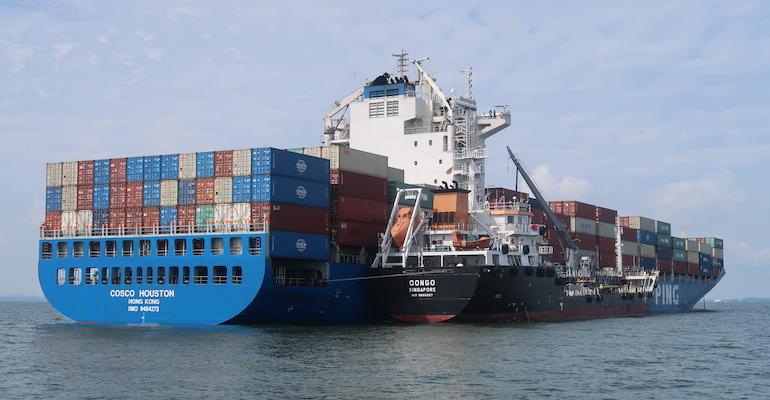Speaking to Seatrade Maritime News ahead of his presentation at CMA Shipping 2023, Michael D. Kass, PhD, of the Energy Science & Technology Directorate at Oak Ridge National Laboratory said that the US Department of Energy (DoE) has been evaluating biofuels against four main criteria: potential for greenhouse gas reduction, economic feasibility, technical feasibility, and the availability of feedstock resources.
While the data is not yet in on the volumes of biofuel various inputs have the potential to create, current availability of biofuels is a limiting factor in their adoption. The full volume potential of biofuel feedstocks is something the US national laboratories plan to look at this year, he added.
While recent biofuel demonstration studies and trials have used biofuels blended with fuel oil in different ratios, Kass said that-depending on the biofuel type-any barriers to use of 100% biofuel as bunkers are more about cost and availability than technical limitations.
“Ships can operate on 100% biofuel right now, but it depends on the type of biofuel. Most of the demonstration studies that I am aware of have used what we call biodiesel in the United States or FAME (fatty acid methyl esters),” said Kass.
The drop-in nature of biofuels is among the strengths of the fuel for decarbonising the maritime industry, along with their compatibility with existing infrastructure and generally low levels of sulphur.
“For other biofuel types, such as pyrolysis oils, more work needs to be done to overcome issues such as stability, polymerization, etc. Here, the issue is cost. We can certainly upgrade a pyrolysis product to overcome these issues, but each step adds to the cost. The key is finding the optimal balance of upgrading and engine performance, and of course, cost,” said Kass.
Register to Attend CMA Shipping 2023 and see Michael D Kass, PhD present DoE Marine Biofuel Feasibility Project Findings
As with other future alternative fuels, the sheer scale of the maritime industry and its fuel demand poses its own challenge.
“The other concern is availability: Even if we wanted to run ships on neat biodiesel, there is not enough production to support its widespread use. This is an issue that is being looked at by many groups,” said Kass.
At CMA Shipping 2023, Kass will present the findings of a series of studies from US national laboratories into the technical and economic feasibility of biofuels for the maritime industry, from the blending characteristics of biofuels through to their carbon emissions reduction capacity and competitiveness with heavy fuel oil.
In a recent paper co-authored by Kass, Techno-economic Analysis of Sustainable Biofuels for Marine Transportation, researchers found biofuels offer the potential opportunity to decarbonise the maritime industry with competitive pricing. Biofuel production also has good sustainability credentials when it comes to water usage when compared with oil refining.
The paper also noted the benefit of having multiple feedstocks and pathways to creating biofuels, mitigating marine biofuel adoption risk in terms of feedstock availability and biorefinery economics.
Copyright © 2024. All rights reserved. Seatrade, a trading name of Informa Markets (UK) Limited.
Add Seatrade Maritime News to your Google News feed.  |

